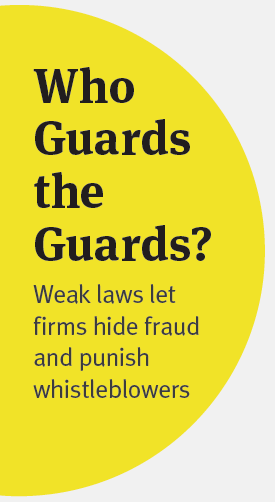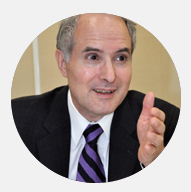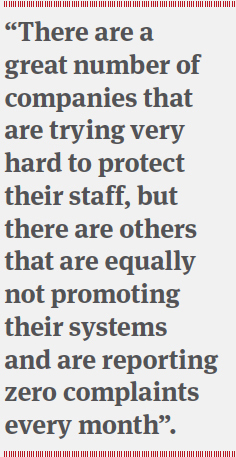Michael Woodford is getting all the plaudits for uncovering shady deals to allegedly cover up $1.5bn in investment losses at Olympus Corp., but the British former chief executive of the firm emphasised that credit for the scandal being uncovered belongs elsewhere.
Asked the source of the information that served as the basis for two irrefutable stories published by Facta magazine, Woodford said, “It was a whistleblower— and he or she is the brave one.
“That person is a hero”, Woodford said on 26 November.
“It is the leadership that has gone wrong”, he said when asked about corporate governance at the firm that sacked him.
He also said that reasons for his own appointment—perhaps surprising, given that he had previously reported wrongdoing when he headed the firm’s European operations—had become apparent.
“So I have a reputation for reporting wrongdoing, but Olympus is the seventh most indebted corporation in Japan and the balance sheet is massively leveraged”, he said, adding that former Chairman Tsuyoshi Kikukawa “needed someone who could turn a profit that would be able to hide the past”.
Japan has serious fiscal problems that need to be addressed—a massive national debt, the need to rebuild the Tohoku region and the most rapidly expanding elderly population in the world—so there is a need for firms here to perform well and adhere to the rules, said Woodford.
“I think there are common issues in relation to corporate governance”, he said, suggesting that changes need to be made to the way firms are managed here, such as the inclusion of more non-executive officers in the decision-making process and shareholders being given the right to sue boards that make bad decisions. Cross-shareholdings here are also effectively preventing badly run firms from being bought out and turned into more efficient and profitable enterprises.
“There are lots of good companies in Japan, but they are run by poor boards”, said Woodford.
“The reason whistleblowers come forward here is because they want the right thing to happen”.
 When Japan’s Whistleblower Protection Act went into effect on 1 April 2006, there were high hopes that the legislation would force corporations here to adhere more closely to the rules. At the same time, it was expected that there would be safeguards for rights of those were brave enough to be the nail that stuck out in Japan’s business world.
When Japan’s Whistleblower Protection Act went into effect on 1 April 2006, there were high hopes that the legislation would force corporations here to adhere more closely to the rules. At the same time, it was expected that there would be safeguards for rights of those were brave enough to be the nail that stuck out in Japan’s business world.
However, it appears that the first of those aims has fallen short. Headlines point to allegations of shady financial deals and accounts being window-dressed at Olympus Corp., as the former chairman of Daio Paper Corp. is investigated for allegedly borrowing from the firm’s subsidiaries the sum of ¥10.6bn—which he then apparently lost at the gaming tables of Macau and Singapore.
Experts in corporate governance are concerned that firms may be paying lip service to the requirement that they enable whistleblowing and protect those who do reveal illegal activities. Employees here may not be in as strong a position as they are in other jurisdictions.
Britain safeguards “protected disclosures” through the Public Interest Disclosure Act of 1998 and, in the US, the Dodd-Frank Wall Street Reform and Consumer Protection Act serves a similar purpose. But both legal instruments differ from the rules in Japan.
The US act, for example, makes it possible for a whistleblower to receive 30% of fines over $1mn levied by the Department of Justice against a firm after it has been found guilty of wrongdoing.
“There are no incentives for whistleblowers in Japan, so the reason they come forward here is because they want the right thing to happen; they are ethical and they don’t want their company to be in the wrong”, according to Nicholas Benes, representative director of the Board Director Training Institute of Japan.

Nicholas Benes: no incentives for whistleblowers
“Japanese people have a great deal of loyalty to their organisation and hierarchy but, if a person fails to act—out of a sense of loyalty—and that leads to 20 years of malfeasance, how is that helping the company?”, he asked with a shrug. There is, he points out, no way of sugar-coating a firm’s falsification of accounting records or its links to organised crime groups.
Despite the lack of incentives, however, there has been a gradual increase in the number of whistleblowing cases in the past five years, according to Stuart Witchell, senior managing director of the Global Risk & Investigations practice for FTI Consulting in the Asia-Pacific region.
“I would say that the strongest single reason for the gradual increase has been the ‘demonstration effect’ of other individuals taking cases against major companies over mistreatment after whistleblowing and winning their cases in court, although the compensatory amounts tend to be relatively paltry”, he said.

Yet he points out that others inevitably will be discouraged by reports of whistleblowers being ostracised by colleagues, and the “relatively narrow breadth of the current legislation”— which only applies to private-sector employees, leaving business partners, suppliers and customers unable to act as whistleblowers.
But fear remains the single biggest obstacle for potential whistleblowers. “The most common reason for not stepping forward given by the employees in a survey, by the Consumer Affairs Agency in October 2010, was the fear of receiving unfair treatment at the workplace”, according to Mariko Kobayashi of Freshfields Bruckhaus Deringer in Tokyo.
Tellingly, 44% of the 3,000 respondents said they would not think of reporting malfeasance within their company.
“It is difficult to say that whistleblowers are effectively protected under the legislation”, Kobayashi said. “There may have been a legitimate reason for limiting the scope of whistleblowing protected under the law—in order to prevent the abusive revelation, by discontented employees, of information about firms that damages the enterprises’ reputation—but the new legislation does not seem to be helping in terms of encouraging more people to step forward”.
Under the act, whistleblowers who uncover criminal acts in their respective firms are encouraged to report it in-house as a first step, and are protected from retribution, be it dismissal or being sent to a firm’s far-flung outpost to shuffle papers.

Mariko Kobayashi: whistleblowers fear coming forward.
Going to a government agency or public officer requires that the whistleblower have “sufficient cause”, in the form of evidence, to bring a complaint.
Should the whistleblower contact a third party, such as a media outlet, the preconditions for enjoying legal protection become even stiffer, points out Benes, and they then need to be able to establish that:
- There is “sufficient cause” to bring the claim.
- They will be fired or receive other unfair treatment if the complaint is handed to the firm or government agency.
- Evidence supporting the claim will be destroyed or altered if the in-house reporting route is taken.
- The employer has demanded, without apparent justifiable reason, that the claim not be made.
- The employer has failed to investigate the matter within 20 days of the complaint having been lodged.
- Someone’s life is at risk.
“Those are pretty stringent constraints and the obvious question would be how anyone could ever be sure that any of those actions were going to take place”, Benes said.
The law also encourages firms to set up ways in which whistleblowers are able to anonymously report misbehaviour. Some 97.8% of employers, who have a staff of more than 3,000, have confirmed to the Consumer Affairs Agency (CAA) that they have complied with this requirement. Within that, however, there is good and bad, Benes points out.
“At one end of the spectrum, we see situations in which there is a company employee on the other end of this hotline, who could very easily recognise the caller’s voice”, he said. “Or there is an outside lawyer who will promise to help, but who is essentially still employed by the company. There is also the issue of women who are not happy to talk to men if it’s a matter of harassment in the workplace”.

Stuart Witchell reports an increase in whistleblowers.
The optimum situation might prove to be a system by which anonymous e-mails can be sent to a third party and acted upon by the board. But even then, it is far from a foregone conclusion that a firm will take the complaints seriously.
“There are a great number of companies that are trying very hard to protect their staff, but there are others that are equally not promoting their systems and are reporting zero complaints every month”, said Benes.
“I would say that zero complaints month after month is a warning sign”, he added. “It shows that people are not comfortable in the system or have no faith in it. I would argue that it is much more healthy to have some issues raised each month”.
Figures from the CAA report bear out the suggestion that employees are not necessarily being informed of the legal recourses that are available to them, with a mere 2.7% of the 3,000 workers replying to the online questionnaire that they are fully aware of the whistleblower protection legislation. More than 65% had no knowledge of it.
Kobayashi has a number of recommendations to improve the law, although any tweaks are not likely to be welcomed by Japan’s powerful corporate lobby:
Increase efforts to publicise awareness of the law.
- Expand the scope of facts that can be reported.
- Relax rules on blowing the whistle to outside parties.
- Exempt whistleblowers from criminal and civil liabilities resulting from legitimate actions.
- Oblige employers to investigate complaints and reveal the outcome.
- Ensure firms protect the identity of those who step forward with information that could impact the rest of their working lives.
- Boost the number of those protected by law. Directors—not regarded as “workers” under employment laws, a fact that directly impacts Michael Woodford in his dispute with Olympus—should be excluded.






